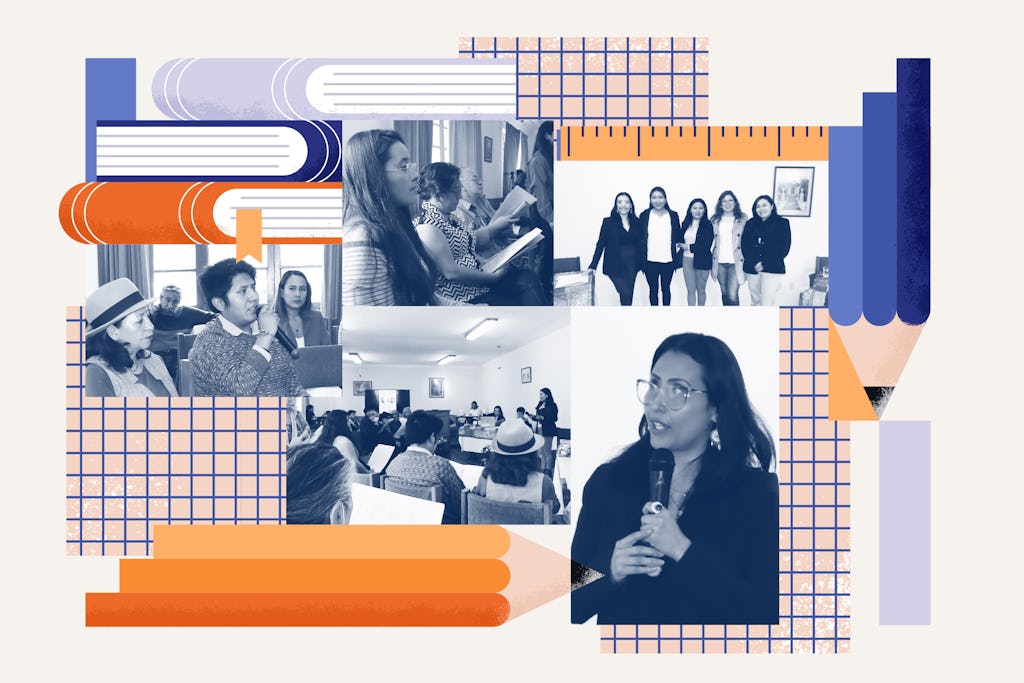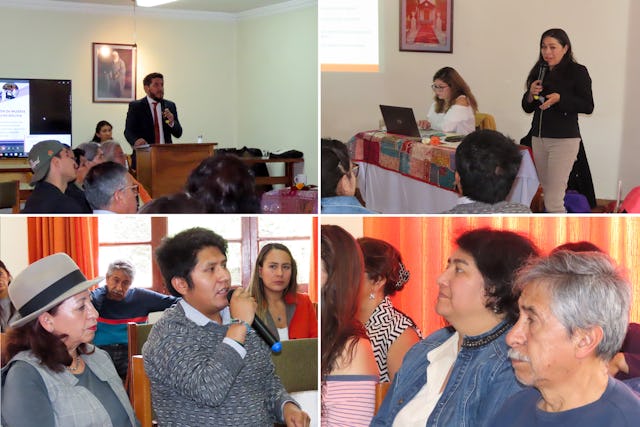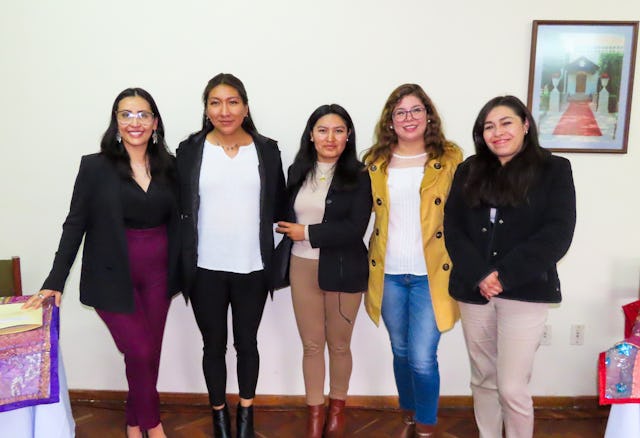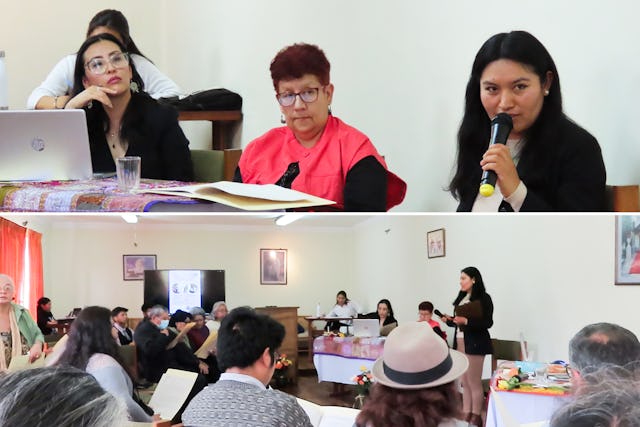Bolivia: Women’s education a catalyst for societal progress
LA PAZ, Bolivia — A forum recently held by the Bahá’í Office of External Affairs in Bolivia brought together government officials, civil society leaders, academics, and journalists to explore the centrality of women’s education to social progress.
The discussions underscored the significance of ensuring equal educational opportunities for women and men as a fundamental aspect of achieving justice. The conversation, however, went further, emphasizing the need for the principle of equality to be interwoven into the very fabric of society.
“Humanity’s advancement is inextricably linked to its commitment toward equality,” stated Rosmery Chambi of the Office of External Affairs.
Ms. Chambi added that when the principle of equality is genuinely applied in different facets of life, it fosters equal opportunities and empowers women to “become active promoters of social wellbeing.”
Participants noted that the challenge of achieving equal access to education is not merely a hurdle, but a manifestation of deeper, widespread inequities within society.
Bitia Vargas, director of the Q’umara Community Mental Health Association, highlighted the cyclical nature of this challenge. She pointed out how historical barriers to education for women and girls have not just been symptoms but also perpetuators of inequalities.
However, Ms. Vargas offered a hopeful perspective drawing on the Bahá’í teachings, which state that the soul has no gender. “The Bahá’í teachings state that there is no inherent distinction between women and men, they both have capacities to contribute to the advancement of society.”
Janette Huallpa, a representative of the Coordinator of Women of Bolivia, drew attention to the stark gender-based educational disparities identified through her organization’s research. There are significantly higher rates of illiteracy among women than men, particularly in rural areas—a discrepancy that sheds light on the broader issues of poverty and violence, which disproportionately affect women and girls.
“Education acts as a transformative force,” Ms. Huallpa stated. “It not only broadens opportunities for women to share their insights and enriches their contributions to society, but it also plays a crucial role in combating poverty, reducing infant mortality, spurring economic growth.”
An important insight from the discussion was the recognition that intellectual education, while indispensable, represents just one dimension of a comprehensive educational approach. “Spiritual education is both essential and complementary to academic learning,” stated Ms. Chambi.
She added: “True development encompasses both the spiritual and material aspects of an individual. Insights from religion, such as the essential oneness of humanity, permit us to transcend cultural and social differences, and they contribute to the creation of a more united and equitable society.”
To construct a more equitable society, profound changes are necessary in the existing social order, said Xavier Saire, a representative of the Multidisciplinary Educational Center. “Empowering only women is not enough; empowering men is not enough either. Rather, we must seek a deep transformation of societal structures themselves.”
Participants noted that the forum was an important space enabling diverse social actors to reflect on how such a transformation can occur. Yascara Terrazas, legal advisor to the Association of Women Councilors and Mayors of Bolivia, asked: “Who are the protagonists of change?
“We all are—government, families, and society at large,” she explained. “While obstacles are inevitable on this journey, discussions like this are crucial for forging new paths and crafting a shared vision for social transformation.”



